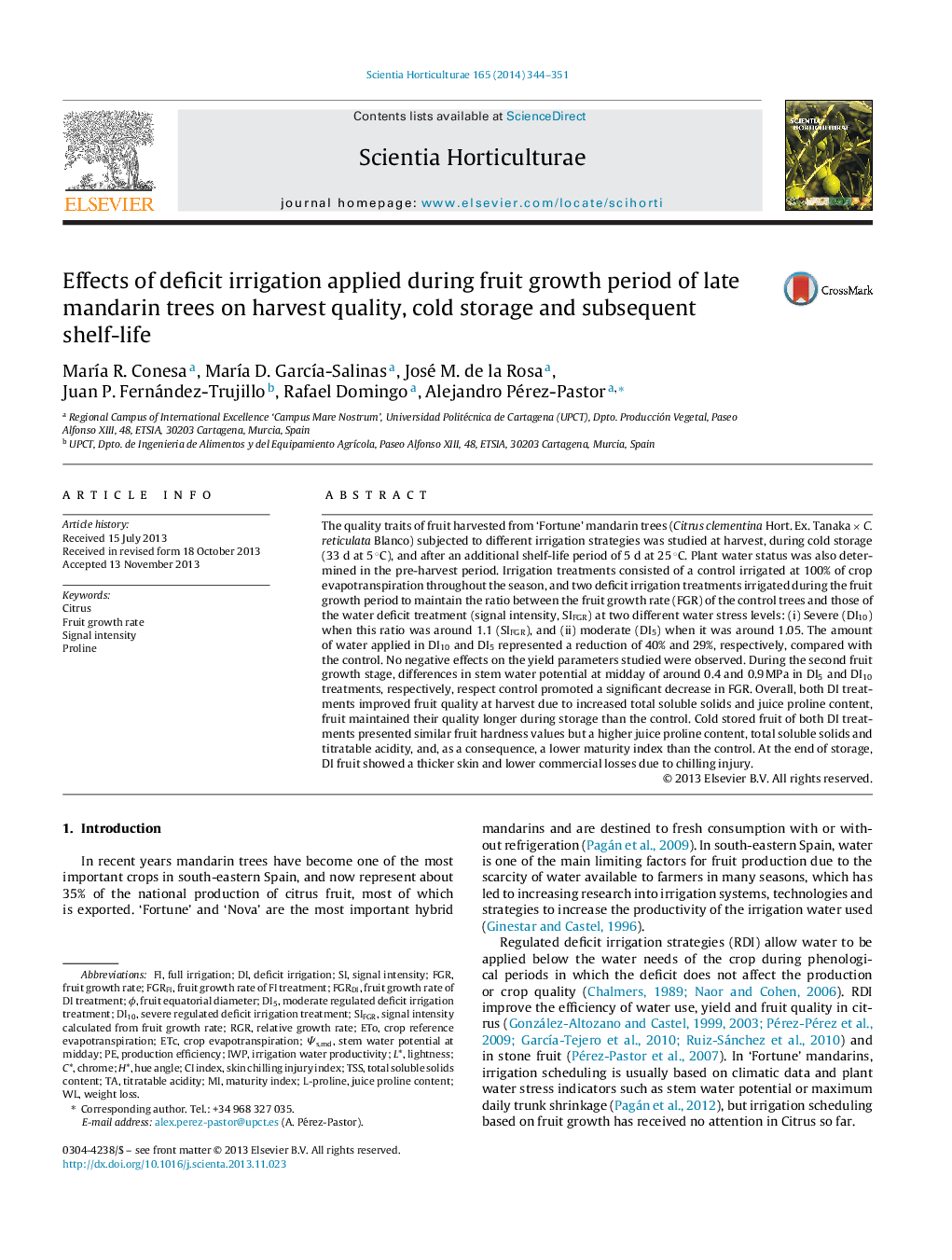| کد مقاله | کد نشریه | سال انتشار | مقاله انگلیسی | نسخه تمام متن |
|---|---|---|---|---|
| 6407470 | 1628833 | 2014 | 8 صفحه PDF | دانلود رایگان |
- The feasibility of fruit growth rate (FGR) for irrigation scheduling in late mandarin trees is studied.
- Stem water potential values differences respect control more than 0.4Â MPa promoted a significant decrease in FGRDI.
- Deficit irrigation (DI) treatments improved fruit quality at harvest.
- DI fruit showed a thicker skin and lower commercial losses than control fruit due to chilling injury.
The quality traits of fruit harvested from 'Fortune' mandarin trees (Citrus clementina Hort. Ex. Tanaka Ã C. reticulata Blanco) subjected to different irrigation strategies was studied at harvest, during cold storage (33 d at 5 °C), and after an additional shelf-life period of 5 d at 25 °C. Plant water status was also determined in the pre-harvest period. Irrigation treatments consisted of a control irrigated at 100% of crop evapotranspiration throughout the season, and two deficit irrigation treatments irrigated during the fruit growth period to maintain the ratio between the fruit growth rate (FGR) of the control trees and those of the water deficit treatment (signal intensity, SIFGR) at two different water stress levels: (i) Severe (DI10) when this ratio was around 1.1 (SIFGR), and (ii) moderate (DI5) when it was around 1.05. The amount of water applied in DI10 and DI5 represented a reduction of 40% and 29%, respectively, compared with the control. No negative effects on the yield parameters studied were observed. During the second fruit growth stage, differences in stem water potential at midday of around 0.4 and 0.9 MPa in DI5 and DI10 treatments, respectively, respect control promoted a significant decrease in FGR. Overall, both DI treatments improved fruit quality at harvest due to increased total soluble solids and juice proline content, fruit maintained their quality longer during storage than the control. Cold stored fruit of both DI treatments presented similar fruit hardness values but a higher juice proline content, total soluble solids and titratable acidity, and, as a consequence, a lower maturity index than the control. At the end of storage, DI fruit showed a thicker skin and lower commercial losses due to chilling injury.
Journal: Scientia Horticulturae - Volume 165, 22 January 2014, Pages 344-351
